Contents
- Overview: The Blue Ocean
- Step 1: Choosing customers for online stores
- Step 2: Selling online stores to your customers
- Step 3: How to price online stores
- Step 4: Setting up successful online stores
- Step 5: Helping customers sell products
- Step 6: Fulfillment and shipping
- Step 7: Iterate and learn
- Why Printavo Merch?
Ready to run online stores?
Printavo Merch lets you manage your shop and create stores in one simple platform.
Learn More – Free Trial
Overview: The Blue Ocean
Online Stores for Print Shops and Screen Printers
Estimated reading time: 40 minutes to 1 hour
Last updated: September 2020

“A blue ocean strategy creates and controls a totally new market space.”
As screen printers and print shops build the future of the custom apparel industry, it’s obvious that online stores are our industry’s blue ocean. The growth of e-commerce far outpaces the growth of overall retail sales:
E-commerce growth, previous 10 years: 394%
Retail growth, previous 10 years: 146%
Typical online stores are poorly adapted to a modern print shop’s workflow. But we knew that there had to be a way for screen printers, embroiderers, sign shops, digital printers and every other type of custom decorator to claim their stake of this massive market.
So we set out to offer a real solution.
We began by asking seemingly simple questions that proved difficult to answer: How could online stores become part of a print shop’s actual printing process? Why can’t print shops provide their customers with simple online stores that add real value? How could we actually help print shops grow their businesses and reach new customers?
Our answer: the quotes and invoices print shops already use for every order could act as the foundation of their online stores. Their screen printing software and their shop’s online stores could talk to each other.
Why offer online stores?
The elevator pitch: Online stores are the simplest way to access exponential exposure and growth.
Traditionally, one group organizer, parent, coach, marketer, or HR rep comes in and places an order. You deliver their merchandise, they pass it on to the members of their organization. They may brag that you did a good job or throw you under the bus if you blew it.
The ordering process is completely different with an online store. One person just sends a link to their group. Every single member of their organization has your information. And they’ve purchased a shirt or some other merch from you.
You can try to spend $100 on Facebook or Instagram ads to get some leads. Or you start an online store – guaranteeing you more orders.
Online stores are the most exciting and challenging frontier for print shops. We created Printavo Merch so you could manage your online stores and your workflow in one stop. It’s already processed tens of thousands of orders and helped print shops generate hundreds of thousands of dollars in additional revenue.
There’s no way for a small business to match a company like Amazon…after all, they’re taking 49% of all online retail sales. Leaders like Apple and Google have set customer expectations for e-commerce very high. Frictionless, customized, on-demand service isn’t just a dream – it’s becoming the norm. But there’s no doubt that print shops can provide their customers with incredible custom service that the biggest e-commerce players can’t.
This guide is intended to help you get the most out of your online stores – so you can make more sales, make more money, and grow your business – whether you use Printavo Merch or not. Now is the time to seize the opportunity and craft the future of the custom apparel industry.
Step 1: Choosing Customers for Online Stores
“The worst thing that can happen is losing money compared to standard custom orders.”
Online stores are great, but they’re not without risk. Choose customers carefully.
You must carefully plan your stores for success. That starts with the customers you choose to offer online stores. There are several ideal customer profiles for online stores – and several customer profiles that are a poor fit.
If you get one thing right, get this right: which customers will get a lot of value from an online store?
Whether due to their scale, reach in the community, or time constraints – there are select businesses and customers that make great candidates for online stores. Here’s a simple test for determining if an online store could have broader reach.
It goes like this: Does grandma probably want one too? If she does, that’s a great candidate for an online store.
The best online store clients have significant credibility, a consistent following, and the ability to actually sell their merchandise (either by necessity or because of their popularity). Think big!
Many of these ideal customers face consistent demand for custom merchandise and have organizational restraints so that collecting sizes, customizations, and payments is a significant hurdle. That means a simple online store meets their needs.
Look for customers that have creative fundraising opportunities, the ability to seize on viral memes or hot market events, or broad reach within your community as your “whale” clients for online stores.
Here are examples:
- Athletic leagues
- Recurring need for custom jerseys and uniforms
- Large scale
- Huge logistics burden for league
- Necessary for participation
- Professional events, outings, and sponsored appearances
- Large scale
- Often B2B
- Less price sensitive
- Marathons and other athletic endurance events
- Packets, custom athletic gear
- Trophies and medals
- Photo kits
- Reunions
- Recurring
- Simplifies typically difficult orders
- Makes upselling personalized shirts easier
- Company and corporate stores
- Necessary, so it simplifies the ordering process
- Scales extremely well
- Simplifies production
- Fundraisers
- Easy interface
- Extremely clear
- Churches
- Outings, events, clubs within churches
- Reduce complex needs to a few simple stores
- School systems
- Offer a store per school and streamline distribution
- Easily craft dozens of stores and manage them as well
- Simple and effective
- Franchises
- Uniforms and merchandise
- For employees or for their customers
- Don’t stop at t-shirts – condiments, coupon packages, and more
- Marketers
- Easily set up stores and test ideas
- Harness viral memes or short-term events
- Quickly fulfill orders based on exact need, not a projection
- Local government organizations
- Put everything in one place
- Customizations collected easily
- Easy coupon usage
- Unions
- Offer seasonal gear
- Safety gear, work gear
- Super fast customizations
- Hot market trends
- A/B test your ideas with unlimited stores
- See how new designs perform
- Seize on controversy or local athletic events
- Festivals
- Offer before or after stores
- Easy discounts for VIPs
- Simple to segment for different bands
- Events with 100+ attendees
- Souvenirs
- Autographs
- Anytime purchasing
No matter which customers you choose, online stores like Printavo Merch should be thought of as a luxury service.
Online stores are not a set-it-and-forget-it revenue source. They do not generate demand – online stores are a tool to add value to your customer’s overall experience.
Determine whether the potential profit from an online store for that customer is greater than a traditional custom order. If a traditional custom order would make you more money and be less work than administering an online store, you should just pursue the traditional custom order!
Some good reasons not to offer an online store: low quantities, a new client, uncertain demand for the goods, unresolved or unclear deadlines, and even price sensitivity.
Some examples of Merch stores that we’ve seen fail to meet their minimums – or otherwise underperform:
- A single amateur team
- Only a few potential customers unless the team is very popular
- Not a bad start, but aim higher
- Upsell merchandise to make profitable
- Small events with uncertain attendance
- Don’t meet minimums
- Deadlines may change if event is rescheduled
- A small outing, event, or startup festival
- Not profitable, not customized
- Don’t want to pay a premium
- Startup clothing and fashion brands
- Uncertain demand
- Offer a small custom order first to test their tolerance
- Often want to sell too many products too quickly
However, we should carefully note that you can still offer online stores to these customers – and add real value – if you carefully define your pricing, minimums, and deadlines.
Stores for smaller clients are unlikely to offer the same sales volume as an optimal online store customer. But we’ve also seen small stores unexpectedly blow up thanks to viral artwork or opportune timing.
There’s no reason that a walk-in client with a silly idea can’t find a way to make it work, so be optimistic. Online stores offer a solution in your workflow to accommodate customers with tremendous potential and the large B2B clients that want to take thousands of orders.
How to: Decide if a Customer is Right for Online Store Sales
Before you invest in finding new customers for online stores, look at your current customers. It’s often the case that your best customers now are also your best candidates for online stores.
Follow this checklist for your current top clients to determine if they’re ideal for Printavo Merch stores.
Tally the points as you go and add up the score at the end.
“Does this customer…”
- (+2) Have diverse sizing requirements from customers?
- (+2) Ship orders, but they don’t want to?
- (+2) Handle distribution, but they don’t want to?
- (+3) Handle payments?
- (+3) Need bagging-and-tagging?
- (+3) Have a potential for “Grandma to want to buy one too”?
- (+3) Have a need for more merchandise in the future?
- (+3) Have mandatory merchandise or uniforms?
- (+5) Have a high profile in your community?
TOTAL POINTS: __________
There are 26 points possible.
If a customer scores more than 18 points, consider pitching an online store to them. If they score lower, carefully examine whether an online store is actually a good fit.
The higher a client scores on this checklist, the more value you add to their organization by streamlining their ordering, acquisition, and customization process. As they score higher, online stores become more like a luxury custom printing experience – justifying higher prices and more effort.
Step 2: Selling Online Stores to Your Customers
Given the overall growth trends in e-commerce and online stores, we’ve found two disturbing trends:
- Customers don’t understand the value of an online store.
- Print shops don’t understand how to sell online stores.
E-commerce is a foreign phrase to many customers, even if they know and use Amazon. Customers may believe that a high-quality online store is cost-prohibitive, too troublesome to deal with, or simply too complicated given their limited time and resources. In turn, print shops abandon online stores as a revenue source.
The truth is that online stores are an opportunity to help your customers. It is another route you can take in your custom printing workflow.
The major pain points preventing customers from using online stores include:
- Time constraints. Customers believe they lack the time required to set up, manage, and fulfill online stores. They are likely concerned with their work, event, or organization. Choosing an online store platform, setting it up, and then having their printer take orders from that store is beyond their limited time budget.
- Cost concerns. Customers believe online stores are expensive. They believe that they will have to pay for expensive development costs, pay subscription fees, or otherwise need to shell out big bucks to get a halfway decent online store.
- Technical hurdles. Customers believe they don’t have a firm grasp on the technical skills required to run and fulfill online stores. They believe that online stores require a great deal of coding knowledge, or can’t make sense of the multiple integrations and settings that need to be controlled for seamless sales.
- Uncertainty. Customers believe online stores aren’t a sure thing, or that they’ll confuse their own customers.
If you understand these pain points – and relate how online stores can resolve them because you’re the expert that has the answers – you can easily upsell online stores to your customers.
Below, you’ll find sample sales scripts, a white-labeled sell sheet you can edit to your liking, and sample terms & conditions you can offer to your customers.
Sample Sales Scripts
Let’s arm you with simple scripts and strategies for talking to customers about online stores. We’ll go through each pain point (time, cost, technology, and confusion) to give you a model you can refine to fit your sales style and customers.
Q: Do sales scripts actually work?
A: While lots of salespeople reject scripts, they’re often useful guidelines for crafting a pitch that is more reflective of that salesperson’s real voice than an on-the-fly pitch. They can focus on tonality, specificity, and meeting the exact needs for that individual customer – even with a script – because they have a multitude of “moves” available to them.
These guides aren’t word-for-word scripts, so use them to flesh out a more robust script in your brand’s voice. (Continue your learning with Hubspot’s tips for closing a deal)
Value Assertion #1: Save Time
The core assertion: you will save time – and reduce frustration.
Define the problem
“Custom orders are time-consuming, and you have better things to do. How long did you spend gathering info and distributing shirts last year?”
Introduce the solution
“Let us take orders, sizes, customizations, and payment. All you have to do is get the word out. We’ve found that most people save about 5 hours when they go with an online store.”
Specify benefits
“We’ve found that most people save about 5 hours when they go with an online store. But what they really love is that they don’t have to feel anxiety about taking care of the order. We handle that.”
Offer concrete next steps
“We’ll send you several options for merchandise – good, better, and best. Then we’ll work to craft a design. All that’s left after that is some brief paperwork so we can agree on dates and prices – then, boom, your store goes live!”
Value Assertion #2: Save Money
The core assertion: it’s not expensive, risk is low, and the upside is potentially very big.
Define the problem
“Online stores are expensive…if you do it by yourself. Shoot, maybe you’ll find a way to do it for free – but then you have to actually build it and fulfill it. That sure isn’t free. The time you’re spending on custom merchandise is stopping your organization from growing.”
Introduce the solution
“Let’s partner to build an online store that costs just a little bit more than a traditional custom printed order – but saves you all of the money you’d lose from having to skip work and handle the nuts-and-bolts of the order.”
Specify benefits
“We charge a small premium for online stores, yes. But – do the math. If you save 10 hours of time and value yourself at $50 a hour…that’s $500. You can offload all of that anxiety for a lot less than $500 with an online store. Plus you can easily reach even more customers than before.”
Offer concrete next steps
“We’ll pick good, better, or best garments, narrow it down to one or two really great designs, and – boom – build you an easy, fast, and clean online store. Let’s get this done in time for your big event.”
Value Assertion #3: Simplicity
The core assertion: we handle the complicated technology.
Define the problem
“There are dozens of moving parts in group orders, right? Payment, sizing, customizations, timing – even just getting everyone on the same page. Haven’t you lost a few uniforms before? Hasn’t someone given you bogus sizing info?”
Introduce the solution
“Let’s take all of that off your plate. We can reduce the errors and handle fulfillment while you work on what matters. We set up an online store and your team pays for their uniforms right then and there.”
Specify benefits
“You help us choose some garments and designs, then you go back to handling business. Our online store won’t just save you time – it will boost sales, broaden your reach, and offer your customers a much more satisfying experience.”
Offer concrete next steps
“We’ll pick garments, designs, and help you build a clean and simple online store. The terms are super simple and everything is transparent. Let’s get your store set up today!”
Value Assertion #4: End Confusion
The core assertion: custom group orders are complicated and confusing – but they don’t have to be.
Define the problem
“Wrong sizes, misspelled names, lost order forms, missed payment deadlines – sound familiar? Sounds fun, right? Wrong! Group orders are usually a nightmare, even for pros like us.”
Introduce the solution
“End the confusion: let the experts handle it. We figured out that a simple online store can resolve headaches in a snap. It’s easier on you because everyone goes through one source. No lost emails or misplaced order forms required!”
Specify benefits
“Getting their sizes, their names, taking their payments, keeping track of their addresses, fulfillment. You work on what matters…not on procuring merchandise.”
Offer concrete next steps
“We have the perfect t-shirts and uniforms for your team – and your fans. Let’s get a store set up today. It’s really that easy. I’ve got the terms & conditions ready for you – they spell everything out in detail.”
Sample Sell Sheet
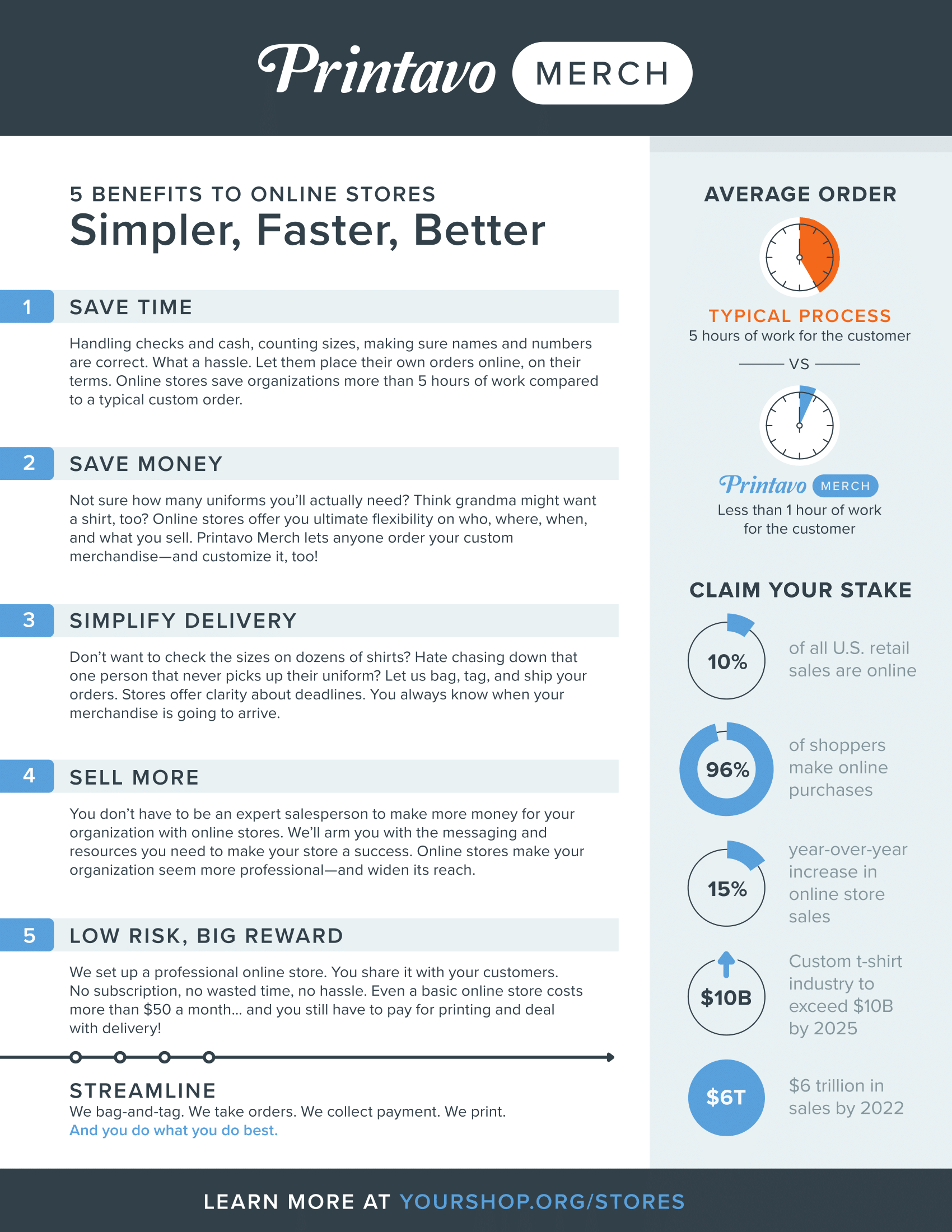
Download and modify this Adobe Illustrator file below.
Just click the button below and download the file from Google Drive.
You can download and modify the sell sheet above as you wish.
Change colors, logos, copy, fonts, etc. with the provided Adobe Illustrator file.
Brand it your way, with your voice, and easily upsell your own online stores!
Sample Online Store Terms & Conditions
Since writing terms and conditions can be challenging, we’ve developed sample terms and conditions for online stores that you can modify to your liking.
Once you’ve successfully pitched the store to your customer, it’s vital to agree on terms and conditions.
This is an opportunity to set expectations, clarify important dates, and clearly outline the scope of the service you provide to your customer.
It’s important to understand how to use these templates before you implement them. Here’s how.
Below are two versions of terms & conditions you could use with your customers. They are slightly different, but cover the same crucial details:
- Contact info (Email, phone, website, online store address)
- All important dates (Opening, closing, production, in-hand dates)
- Minimum order (Quantity or revenue – however you do it)
- All important policies (Returns, fulfillment, any unique caveats, etc.)
Any item that is underlined will need to be customized with your details.
Read these terms and conditions carefully to ensure they’re exactly how you handle online stores. You may use or modify these as you wish. We suggest using your own branded language, colors, and logos.
Finally, we urge you to go through the terms and conditions with your customers, line by line.
A signature is adequate, but actually reading through the important details helps reduce mistakes and set clear expectations. It underlines the amount of work you’re doing for their success, and illustrates how far you’re willing to go to make sure their big merchandising push is successful.
Sample Online Store Terms & Conditions – Example #1
Your Shop (i.e. Wooden Cotton Printing)
Your Client (i.e. Cumberland Parks Department)
Effective: DateWe are thrilled that you have chosen to sell your merchandise with an online store!
To ensure the smoothest possible experience for you, we have set out clear terms and conditions.
If you have any questions or concerns, please contact (Name) at (Email/Phone) by (Date).
TO START YOUR ORDER
Sign and return this form to (Email Address) as soon as possible. Please provide a down payment of (Amount/Percentage) to begin your order.
This document is an agreement between (Your Shop) and (Your Client) pertaining to (Your Client’s) online store for their order (Invoice Number) for an estimated (Quantity) garments to be delivered by (Date).
(Your Shop) will furnish, fulfill, and maintain all online services related to (Store Title) if all requirements are met.
I agree: __________
REQUIREMENTS
Minimums for fulfillment
Per our agreement, if ($X) or (Quantity) in garments are not ordered by (Date) through the online store, the order will not be fulfilled and the store will be canceled.
If the agreed-upon minimums are met, we will fulfill order #(Invoice number) at or by (Date).
We will notify you via email on (Date), or approximately 3-5 days before the closing date, to inform you whether your order will be fulfilled.
Under no circumstances can we fulfill orders that do not meet the agreed-upon minimums. However, we promise a minimum of 3 days notice if your order does not meet minimums. Contact us immediately if you are concerned that your store is not going to meet minimums.
Store duration
Per our agreement, your online store (Store Title) will run from (Open Date) to (Close Date). As agreed, we will contact you on (Date) to inform you of your store’s status.
Under no circumstances may we extend store deadlines. Please ensure that the dates above do not conflict with your organization’s schedule.
I agree: __________
POLICIES AND PROCEDURES
Misprints, missing items, and other errors
(Your Shop) guarantees (90%) accuracy on this order. We will (refund/replace) up to 10% of the (order value/order quantity) in the case of misprints or missing items.
For misprints, the garment must be returned to (Your Shop) within (14 days) of the online store closing. A misprint is defined as a defect that is a direct result of a production error in (Your Shop).
For missing items, the garment must be requested through (Liaison name) at (Email/Phone) within (14 days) of the online store closing. We will refund or replace up to (value/quantity) in missing garments. A missing item is defined as an item that was purchased and accounted for but was not received by the customer.
We assume no liability for errors made by you or your customers, including:
- Sizing errors (i.e. customer puts in wrong sizes)
- Customization errors (i.e. customer enters wrong name or number for customization)
- Shipping and address errors (i.e. customer inputs wrong address for delivery)
- Customer dissatisfaction (i.e. customer does not like color or material)
REFUNDS, RETURNS, CANCELLATIONS
Customers may cancel orders at any time before the store’s closing date (Date). They must contact (Liaison) at (Email/Phone) immediately with their order details.
You may ask to cancel and close a store within (7 days) of placing your order. However, you will lose your initial deposit of (Amount/Percentage).
We do not offer any refunds or returns once a store has closed. In the case of an emergency, we may be willing to work with you to make arrangements to delay delivery or production.
I agree: __________
Sample Terms & Conditions – Example #2
Note: carefully select your Setup Fees and Fulfillment Details with this template. Choose one method or insert your own. Setup Fees and Fulfillment Details are starred with an * asterisk.
Store Opening Date:
Store Closing Date:
Order Minimum:
Estimated Delivery Date:Upon approval of your mockups and proofs, you, (Customer Name), agree to these terms & conditions for the online store created by (Print Shop Name) for (Customer Name).
*Setup Fee (Option 1)
You agree to pay a one-time, non-refundable setup fee of ($100) on (Date) before your store is live.
*Setup Fee (Option 2)
You agree to pay a refundable ($150) deposit. This deposit shall be returned within 10 days of (Date of Store Closing). If your store does not meet the agreed-upon minimum sales, you forfeit this deposit.
I agree: __________
CANCELLATION POLICY
You may cancel your online store, but forfeit your deposit / setup fee, up to (5 days) before the (Store Closing Date). Please contact us immediately if you need to cancel the store.
I agree: __________
DEADLINES AND MINIMUMS FOR FULFILLMENT
The order minimums for fulfillment we have agreed upon are:
By (Date), ($1,000) in sales or (80 pieces) ordered.
We will notify you (3 business days) before the store closing date, (Date). If order minimums are not met, your store will be closed and the order will not be fulfilled.
Please contact us at any time via (Email) to check on the status of your store!
I agree: __________
*Fulfillment Details (Option 1)
We will print, bag, tag, and ship your order within (5 days) of the store closing date. Please contact us for a more accurate estimated delivery date.
*Fulfillment Details (Option 2)
We will print, bag, tag, and ship your order for arrival before your event on (Date). Please contact us at any time for an update on the status of your order.
I agree: __________
CHANGES, MISSING ITEMS, REFUNDS, ERRORS
While we strive for 100% accuracy, mistakes can happen.
Within (14 days) of shipping, we will replace, refund, or exchange (at no additional cost) up to (10%) of the total order quantity. This includes missing and misprinted items.
We cannot make exceptions for customer ordering errors such as misspellings or sizing errors. If a customer makes an error while ordering through your store, have them cancel their order and reorder with the correct information.
Great care has been taken to ensure that every garment is accounted for. All items will be listed in the included packing slip. Please check carefully for accuracy and notify us immediately of any problems.
I agree: __________
LATE ORDERS
No late orders can be accepted after (Store Closing Date). No changes can be made to orders after (Store Closing Date). If a customer needs to make a change to an order before the store is closed, have them cancel and re-order their merchandise.
I agree: __________
Download: Sample Online Store Terms & Conditions
Click the button below to download our sample terms and conditions for online stores as a PDF file.
Step 3: How to Price Online Stores
Remember: online stores like Printavo Merch are a luxury service.
The value you add to a customer’s journey through an online store is easy to overlook.
You aren’t just making a store and then printing – there is a lot more involved. So charge appropriately.
Here’s a few different strategies for pricing out your online stores.
Handling payments (and profits)
Handling payment and profit is top-of-mind.
Some print shops add a flat setup fee, while others waive setup costs and add a dollar amount to their traditional screen printing pricing. Some impose minimum order sizes and take a deposit, while others craft a specific pricing model according to their customers’ needs and offer on-going fulfillment. We’ve even seen shops split the proceeds from sales with their customers.
Remember: the goal is to make more money than you would on a traditional custom order.
There are two typical strategies for dealing with payments:
- The print shop collects all revenue from orders. Customers place their order and pay through Printavo Merch or their online store platform.
- The print shop shares revenue from the orders with the customer. Customers place their order and pay through Printavo Merch, and the organization is owed a predetermined amount of each sale.
Ask the customer how they would like to handle payments. It’s important to be transparent and open during these discussions – and to get any agreements in writing (see sample terms & conditions above for a quick start).
Setup fees: to charge or not?
There are three typical strategies for handling setup fees for online stores.
- Charge a setup fee. We have seen multiple shops charge a setup fee for online stores. This is an ideal strategy if the store is high risk and may not meet the minimums for fulfillment – the customer is immediately invested in the success of the store.
- Take a deposit. Another option is to take a deposit that you return when the store meets its minimums for fulfillment. If the store does not meet its minimums, you earn the deposit.
- Waive setup fees, but upcharge garments. If you don’t want to handle deposits or charge a fee, we suggest “waiving” your setup fee. Even if you never intended to collect a setup fee or collect deposits, you should point out to your customer that you’re waiving the setup fee (and assign a value to it): “We’re waiving the $100 store setup fee today since we’re so happy to have your business.”
Setup fees are a way to ensure you still make money on every online store – even if they don’t pan out.
Pricing garments
You should charge a considerable premium on the garments and products you sell through an online store. This premium is – at least in part – intended to cover the associated costs involved with administering the online store.
We suggest a minimum upcharge of $2 per garment. An ideal upcharge could be up to 50% more per garment than your retail printing. Some shops eschew setup fees in favor of a flat fee added to each garment. If you’re splitting revenue with the customer, it’s essential to document and explain your pricing model.
Remember: the goal is to add value to customers while making more money than you would on a traditional custom order.
Upsell: Shipping individually
When you identify shipping as a pain point for your customer, offer shipping through your online store (or Printavo Merch). It’s the easiest way to handle distribution for your customer – no more passing out uniforms, or worse, boxing shirts and dropping them off at the post office. Instead, your shop handles that for them.
Be sure you charge appropriate for shipping and handling. This fee can be added to the price of the garment itself, or passed along as a separate invoice to the customer once the store has closed.
One way to approach this upsell is to offer an illusory discount. You set your normal pricing to a level that actually covers a bit more than shipping, but offer to discount individual shipping once you identify that paint point.
Upsell: Bagging and tagging
If you plan to offer customers online stores, you should plan to offer bagging-and-tagging. An affordable t-shirt folder available on Amazon or any other online marketplace will let your team fold faster.
Pro tip: here’s how to bag-and-tag faster. Use a small cardboard box piece, roughly the size of a folded t-shirt, and place folded shirts on top of it to easily scoop them into poly-bags. This makes the process of bagging-and-tagging much faster.
This can be a premium service if you choose, but we suggest that you consider making bagging-and-tagging a standard part of your online store package.
Why bag and tag? It simplifies and improves the experience for the end customer. You can also slip in promotional materials for your shop – why stop with one customer when you can create 100 potential customers? A simple business card or cool sticker will suffice there.
However, you can also upsell bagging and tagging. A small fee – such as $0.50 to $1 per item – can be added to the price. This is justifiable since bagging and tagging add significant labor time and complexity to the printing and shipping process.
Upselling bagging-and-tagging is natural for retail clients or people that intend to project a professional appearance. If your store is representing a brand, business, event, or public figure – bagging-and-tagging is a must. Don’t let your customers say no.
Step 4: Setting Up Successful Online Stores
Key insight: The most successful Printavo Merch stores made $10k+ in sales with fewer than 9 products.
Design: Keep things extremely simple, no matter which platform you go with. For Printavo Merch, the white background and simple color scheme should be kept in mind as you design your store’s images, mockups, and logo. We’ve found that high-quality mockups with transparent backgrounds “pop,” while traditional photographs of pictures may look too dark or rectangular.
Product Offerings: Work closely with your client to assess their real needs. It’s essential to provide them with expert guidance: choose appropriate products and customizations, but keep it extremely limited. There’s no reason to offer 20 products!
As you gather information about your client’s needs, consider what the story behind the store is:
- Who are they targeting?
- Why do they need an online store?
- What imagery and designs will speak to their customers?
- OR: What customizations and options will they want?
In practical terms, this means creating a store that is simple and straight to the point.
Instead of offering ten products, offer two.
Instead of several designs, offer the best design.
Successful online stores seize on a specific customer desire – whether that’s taking part with a custom product that’s topical (an event), emotional (local pride), or required (uniforms) – then close the loop by offering a very easy way to fulfill that desire.
Tip #1: Use square images of merchandise. Printavo Merch – and virtually all other online store platforms – look best with square images. We recommend images no smaller than 600×600 resolution. There’s an additional benefit to using square images: they’re ideal for social media. Facebook, Instagram, LinkedIn and even Reddit all prioritize square images and display them in the most attractive (and largest) way.
Tip #2: Use high-quality mockups with transparent backgrounds if possible. You’ll want to use the highest-quality mockups or photographs available. Pictures of finished products aren’t always ideal.
Low-resolution art, poor pictures, bad lighting, or unprofessional images make customers far less likely to purchase. Most wholesalers offer mockup images of their most popular products (the image above was provided by Allmade Apparel’s free marketing resources). These high-resolution files are ideal for your stock online store mockups.
If you’re printing intricate or highly detailed art, consider using the art itself as the image.
Tip #3: Keep the store’s info to a minimum. You can use the store description to offer clarifying information or pass important details to customers. We recommend putting as little text here as possible. Some ideas for what to include in the description:
- Store end date
- Pickup details (if applicable, though you can add this to your checkout message)
- A link to any sizing or product details that customers might need
- A contact phone number or email
Keep clutter and unnecessary distractions to a minimum!
The goal is to facilitate a fast checkout process for customers by keeping the focus on the products. Other non-vital info can be passed along later in the process.
Tip #4: Too many products means fewer sales. Research shows that consumers are turned off by stores – online and offline – that have too many products in stock. Our most successful Printavo Merch stores typically offer fewer than nine products, and several dozen stores have made tens of thousands in sales with just one or two offerings. Limiting what you offer has four major benefits:
- Less risk. By offering a handful of garments and products, you aren’t on the hook for dozens of SKUs and different types of decoration.
- Easier to fulfill. Less complex fulfillment can be achieved by narrowing the scope of what’s offered.
- Provide better art. Instead of producing 5 different designs, you can provide one or two excellent designs.
- No analysis paralysis. “Analysis paralysis” prevents customers from making decisions. Instead of buying, they bounce – there’s too much information for them to process.
Tip #5: Use limited time offers to generate demand. Short-term offers drive demand by forcing customers to act. Emphasize the scarcity of the product’s availability whenever possible! A number of services and products utilize limited-time discounts and time-sensitive special offers to drive sales. Help your customers by making the store’s closing date extremely prominent in product descriptions and the store’s description.
Step 5: Helping Your Customers Sell Their Online Stores
You’ve picked the client, sold them the store, helped them price their goods, and set up the store. Now you have to help them sell their merch!
What can you do to help your customers sell their products? Here’s several powerful principles to help you coach and educate your customers.
Here’s how to help your customers sell their online stores:
- Let them know that email is the most effective promotional tool. Since email isn’t mediated by an algorithm, its reach is unlimited (unlike Facebook and other social media platforms).
- Help them narrow the options. Fewer choices equal higher sales. Keep the store simple and the items as limited as possible.
- Discounts are the most effective sales offers. A clear discount (such as $10 off) remains the #1 driver of customer action – second only to free shipping. You can offer discount codes that customers enter at checkout (with a maximum number of redemptions or an expiration date) for Merch stores.
- Key insight: dollar discounts are more effective at driving sales than percentage discounts. People can quickly assign value to a $7 coupon, while a 15% discount may confuse them – even if it’s a larger discount!
- Focus on one marketing channel. While we recommend email as the first-and-best option for promotion, it’s ideal to master one marketing channel. That way, your customers can control their ad spends while carefully tracking results.
- Don’t be afraid to be repetitive. While they may feel guilty about posting too much or emailing too often, customers should be encouraged to err toward too much promotion instead of too little. Parents, teachers, employees, volunteers, and other Merch store customers have limited time and aren’t reading every message. This is doubly true for social media messaging, where each platform’s algorithm may hide your first message but love your second and third.
- Don’t be afraid to be repetitive. Really!
- Samples boost sales. Providing samples that customers can see and touch can boost sales significantly. You don’t need to print a custom sample for every order – instead, keep common garments and merchandise on-hand and use them to help guide customers toward better decisions.
- Urgency is key. Since the store operates on a deadline, your customers can leverage urgency to sell their products. Some common calls to action based on urgency include:
- Buy before the season starts!
- Limited time offer – only 7 days remain!
- This deal won’t last.
- Get 20% off until Thursday!
- Always use a call to action. Even if your customer’s customers are required to order from the online store, a call to action will boost sales and prevent people from forgetting to order. Some examples for calls to action:
- Get your awesome custom uniform today!
- Save on merchandise now –click for info!
- This deal won’t last through the weekend!
- Monday savings – buy today only!
- Lean on Mondays to drive sales. Our own internal data at Printavo has shown that Mondays are the busiest days for online sales. This is echoed across e-commerce stores in general, so time your biggest discounts and email blasts around those days (or advise your customer to do that).
- Buy them some help. It is, unfortunately, a pay-to-play world on social media. But you can do some cool things:
- $50 in Facebook ads for your customer
- Feature them on your website or own social media
- Give them email templates or a quick advertisement design
- Offer custom discount codes at a discount to them
- Help them setup Facebook Events
- Offer to get their email marketing software set up
- Give out flyers
- Give them a short URL with a service like bit.ly
No matter what you do, don’t abandon your customers with a store and leave them be. Always promote their success and do what you can to make their stores beat their minimums and exceed their expectations. Some of the simplest, easiest actions – like affordable online ads – are overlooked, even by prominent figures in big communities!
Become the expert and host the party. The best thing you can do is help your customers promote and sell their online stores. When they win, you win.
Step 6: Fulfillment and Shipping With Printavo Merch and Online Stores
Integrating Printavo Merch into your workflow is easy – that’s why we made it.
Print shops that fulfill online orders have to deal with a lot of headaches – typically because they have to move data from one platform to another. Ultimately, Printavo Merch lets you instantly place every order from an online store into an invoice or quote. From there, it’s part of your traditional Printavo workflow and calendar. You can treat it just like a normal custom order.
But – whether you’re planning to fulfill for Printavo Merch stores or another online store platform – the most important element is clear and consistent communication with your customer. You must agree on the store’s minimums, its closing date, whether the orders will be shipped or dropped off, and details like pricing and garments. Use the sample terms & conditions above to help you guide your initial planning. But you also must touch base before the store closes, when it closes, when you’re shipping or delivering the garments, and even after the store closes.
So what about actually scheduling production for online store orders? The best advice we’ve heard is that you should leave a 2-week buffer in your production schedule from the day the online store opens. Build this into your schedule when you’re selling the online store to the customer – whatever you do, don’t over-promise and under-deliver.
Don’t leave production to the last minute or wait until a store gets sales to schedule production. If there are last-minute marketing pushes and sales dramatically increase, be sure you’ve budgeted adequately for the excess capacity. Equally – don’t be shy about stopping a store when it’s apparent that sales are dwindling or minimums won’t be met.
Since there is more work involved with scheduling and fulfilling production for online stores, you should (as previously mentioned) charge a premium for the service. The additional time required for bagging-and-tagging and/or shipping and handling requires more work and raises your overhead – but it also adds real value to your customers. Not all shops are ready to offer bagging and tagging, but it can be a huge selling point for busy coaches, parents, marketers (and so on).
Finally – plan for an adjustment period regarding customizations (i.e. jersey names and numbers). You may already have a workflow for customizations, but taking multiple different customizations for a single order can have a learning curve. Take a look a the sample fulfillment checklist below to get a general idea for what you’ll need to execute online stores.
Sample Fulfillment Checklist for Online Stores
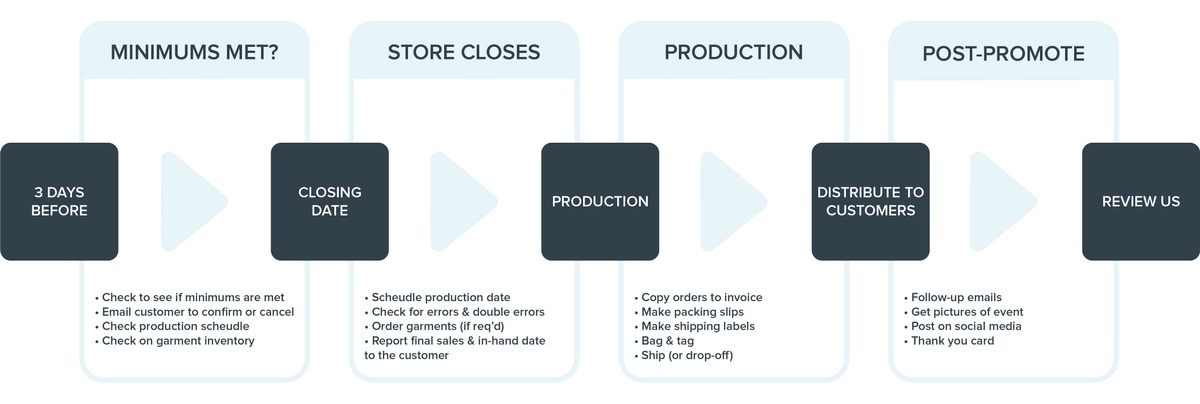
Sample fulfillment workflow. Click to see full-size.
Have minimums been met?
3 days before deadline
- Check if minimums are met
- If yes, email customer confirmation
- Be sure they are prepared to proceed
- Ask if they have plans for further promotions
- Ask if they would like to do another store in the future
- If no, call customer and inform them
- If they want to continue, ask if they need help promoting.
- Consider email blast
- Social media blast
- Contact local media
- Family members
- Organizational help
- Any lifelines
- If they don’t want to continue, ask if they would like a custom order
- If they want to continue, ask if they need help promoting.
Store closing date
Day 0
Day of deadline
- Double-check production schedule
- Check for errors
- Quantity problems
- Obvious misspellings
- Shipping problems
- Customizations
- Order garments (if required)
- Report final sales to customer
- Report estimated in-hands date to customer
- Plan for screens and art, if needed (i.e. customizations)
Producing garments and shipping
Day 0-7
Time to print
- Copy all Orders to Invoice in Printavo
- Double-check plan for customizations (if applicable)
- Follow your traditional screen printing workflow and print
- Make Packing Slips
- Insert business cards
- Insert thank you note
- Make shipping labels (if applicable)
- Photograph the merchandise
- Send to customer to promote
- Use on store in future if desired
- Fold
- Bag-and-tag
- Insert business cards
- Insert free merchandise (if applicable)
- Ship
Post-promotion and follow-through
Day 7-14
The follow-through
- Send follow-up emails
- Send custom thank you gifts
- Send samples to applicable people
- Ask for pictures of your gear in use
- Post on social media
- Send email blasts
- Offer customer future store credits
- Contact media (if applicable)
Learn more about fulfilling and shipping orders in the video below.
Step 7: Continue Iterating and Learning
Improving and growing your online store operation is an ongoing process.
Whatever you do, don’t stop with this guide.
There are many resources and guides to pricing, sales, marketing, and even running a leaner business available that can leverage online stores to shape the future of your business for the better. Online stores grant you the freedom to iterate and quickly implement changes. Take advantage of this fantastic opportunity to be creative and playful in how you approach sales – but be meticulous in doubling-down on what works.
Just as we will continue offering bi-weekly improvements to Printavo and Printavo Merch, you should continue iterating on and improving your process for handling online stores.
Some improvement areas that we’ve observed and heard feedback about:
- Refine your workflow. How do regular orders and online store orders differ? Where is there waste? Online store orders may not significantly differ, but they may require more administration than a typical order (that’s why you charge a premium).
- Iterate on pricing. Raise or lower prices to test their effect on customers.
- A/B test your stores. Try testing two versions of stores – differing designs, descriptions, even marketing channels. You have unlimited stores, so there’s no reason not to test and improve.
- Document everything. Document and track changes you make as you make them.
- Do a post-mortem. If you have a successful store, carefully dissect why it was successful. If you have a failure, examine what broke down and how it differed from successful stores. Isolate variables and control them as much as possible.
- Time-to-completion audits. How long does it take to fulfill an online store order? Track your time spent selling, administering, printing, and fulfilling. Identify trends and look for areas that are inconsistent.
- Try dollar discount sales. Specific dollar discounts are more effective than percentage discounts – that’s why major coupon manufacturers all use them. They simply make more sense to people. Even if we know that $7 may be less than 10%, there’s something more satisfying about “spending” $7 for free.
- Simplify designs. Try offering fewer designs to customers and reducing the work involved with a store.
- Invest in artwork. Mascots, local legends and architecture, memes and more can be great ideas for art. Invest in art that will draw people in.
- Try displaying artwork instead of garments. If you have the right art, people want it more than a t-shirt. Be creative with how you present what you’re selling.
We’ve also published additional interviews and articles about online stores. Check out our guide to making viral online stores and how one print shop owner got more than $1M in online store sales.
Conclusion: Why Printavo Merch?
We made Printavo Merch because we believe your print shop can be more successful with simple online stores.
After months of development and an extended beta testing period, we’re excited to announce that Printavo Merch is ready for its general release.
We’ve seen print shops across the US simplify group ordering for some of their best revenue-growing opportunities, including:
- Profitable annual team jerseys
- Custom engraved trophies and awards
- Huge Greek organization orders
- Giant 300+ member family reunions
- Spectacular church outings and events
- Large-scale corporate stores for high-end embroidery
- Band merchandising
- Viral stores
- Meme stores
- Political fundraisers
- Fundraisers for schools, teachers, uniforms, classrooms
Printavo Merch is another powerful tool for you to use to grow your business. Easy, affordable, and effective online stores are here for the custom garment industry. This is an incredibly powerful service that adds tremendous value to your customer’s experience – and dramatically simplifies your workflow by joining online stores with your shop management and screen printing software.
We believe it will begin to naturally create routes for amazing new opportunities like:
- Offering big clients on-demand fulfillment
- Revenue splitting for big B2B sales
- A dramatic shift toward simpler logistics and ordering
- Raised customer profiles
- The ability to seize on viral meme culture
- Rapid deployment and testing of new branding ideas
- Hundreds of ideas we haven’t imaged yet
The concept is simple.
Customers place orders online. Their orders generate the same invoices you already work from. You print and fulfill. They win. You win.
Now is the time to seize this opportunity.
That’s why we’re releasing Printavo Merch to everyone. Unlimited stores. Unlimited possibilities. The same Printavo commitment to continuous updates and improvements.
We can’t wait to see what you create with it. We can’t wait to build on it and iterate on it with your feedback and help.
We believe your business will grow with this powerful, effective, and simple tool – and we’re thrilled to help that become a reality.
Found this helpful? Printavo regularly publishes educational content featuring the screen printing and custom apparel industry’s best and brightest figures. Check back to the PrintHustlers Blog regularly – and see our newest content first on the Printavo YouTube channel.
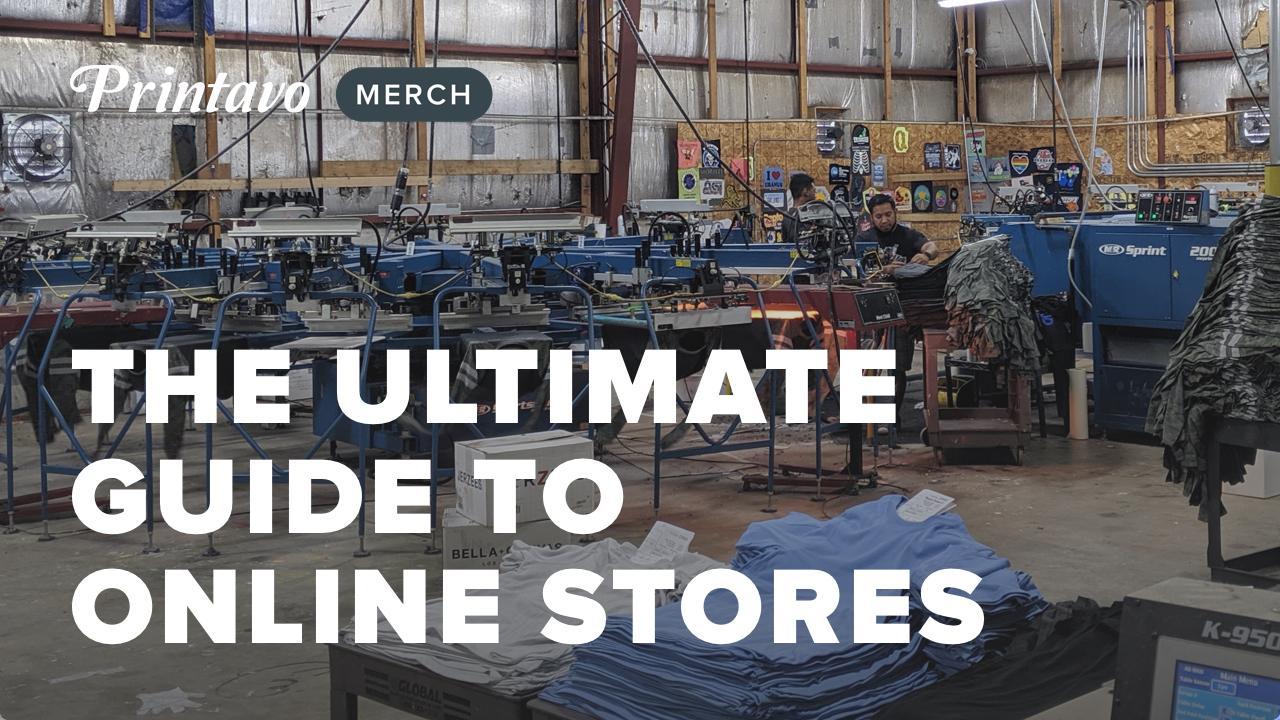




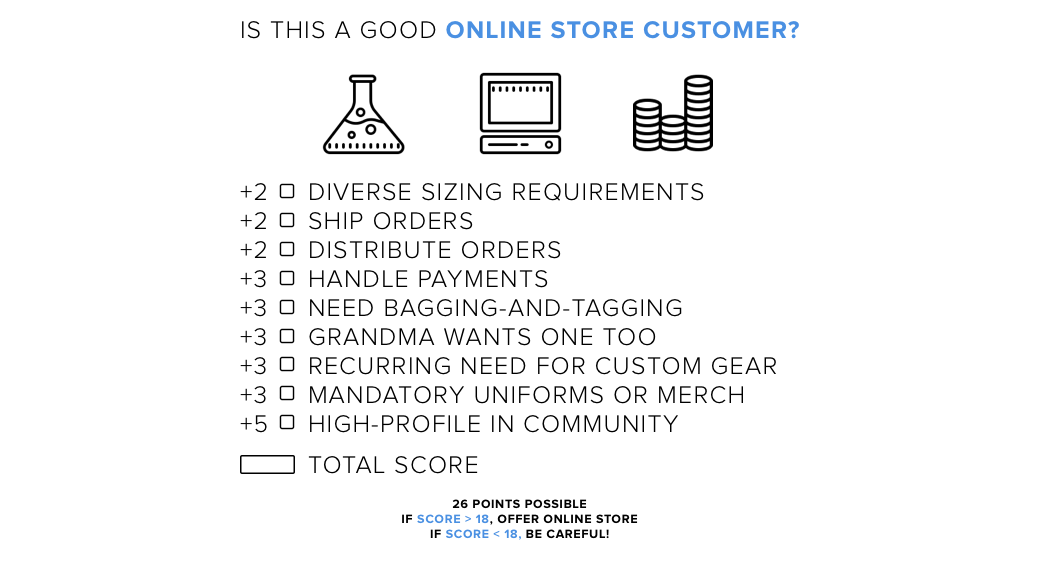




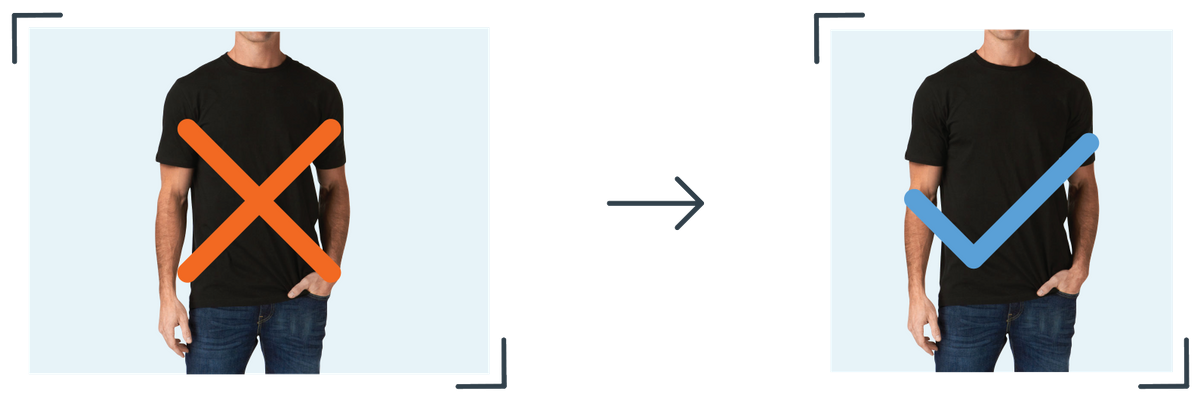

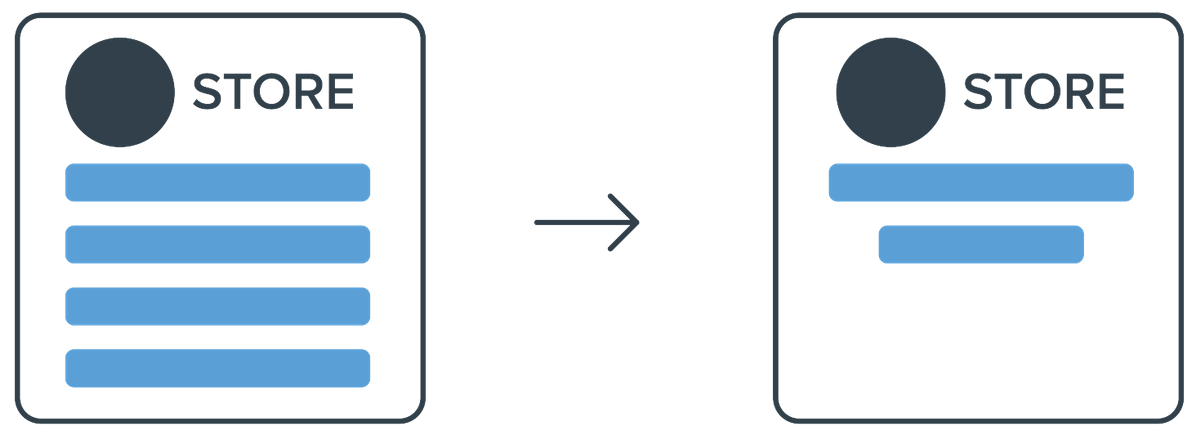


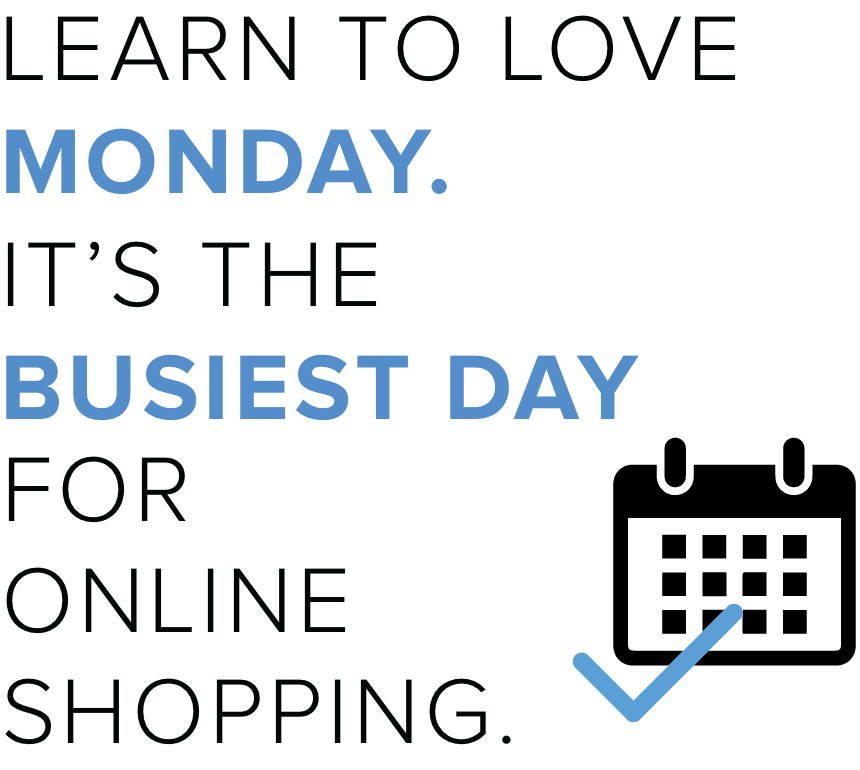

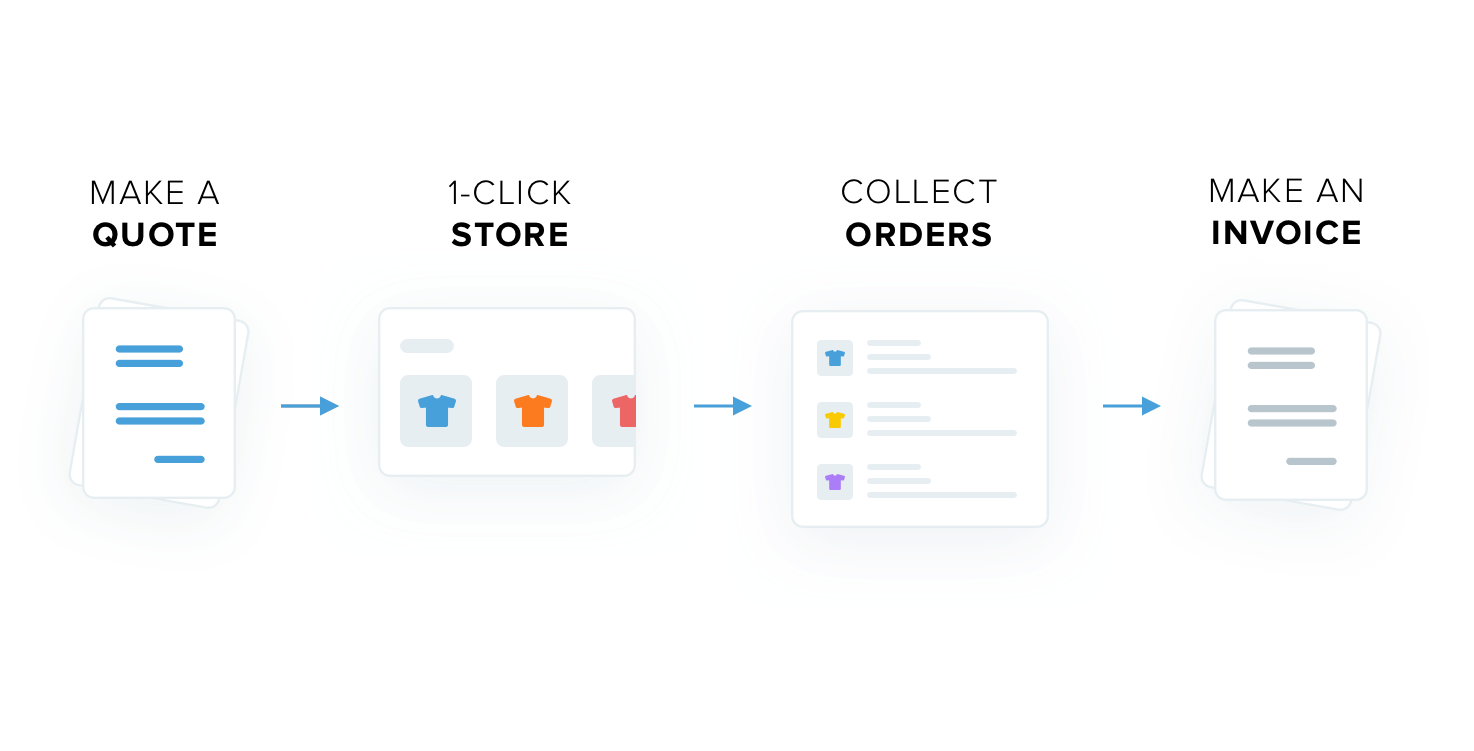
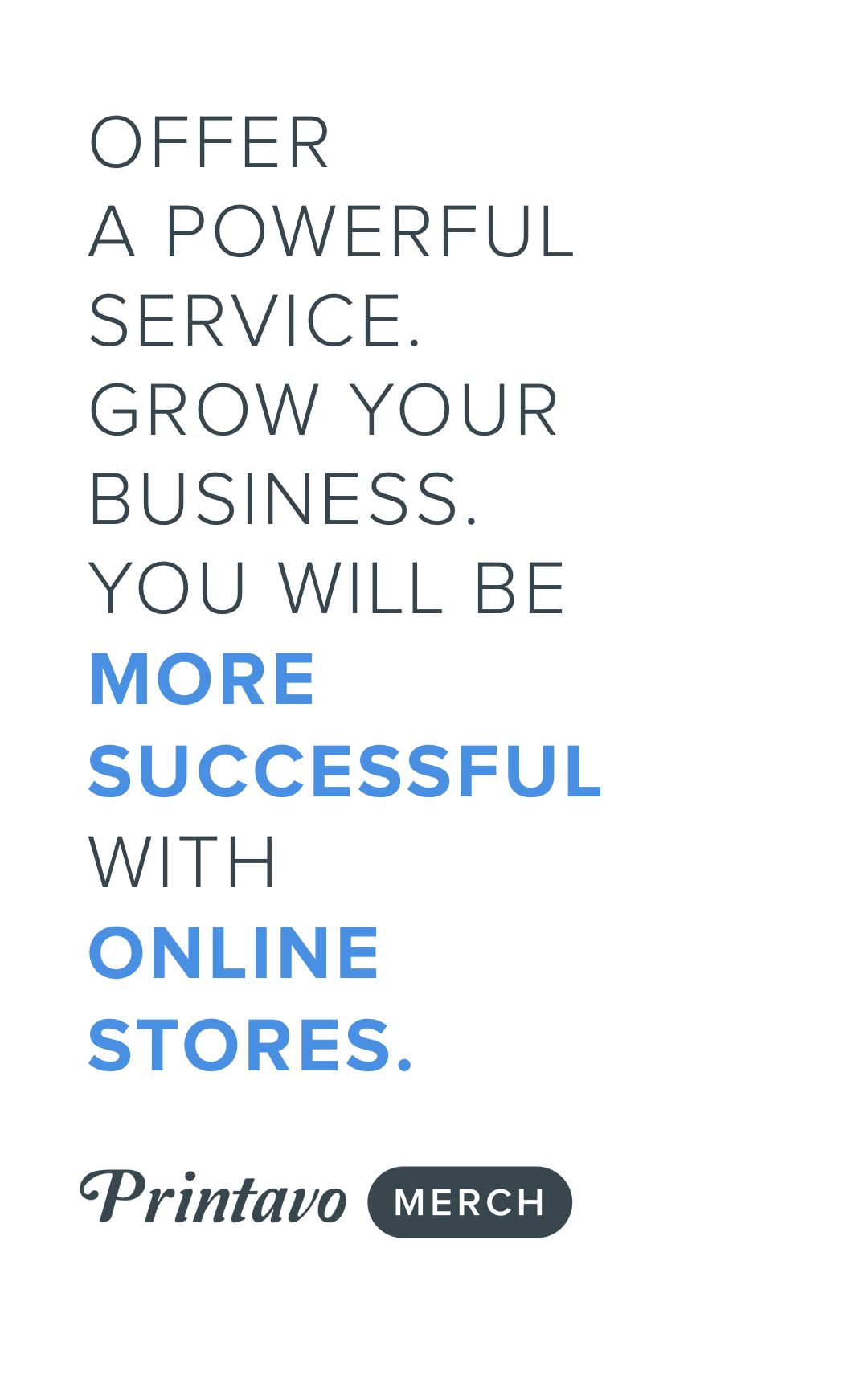

0 Comments